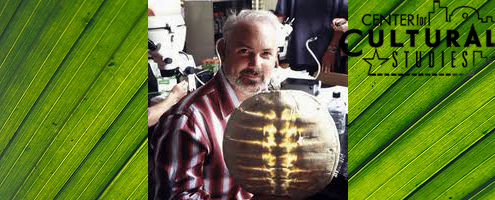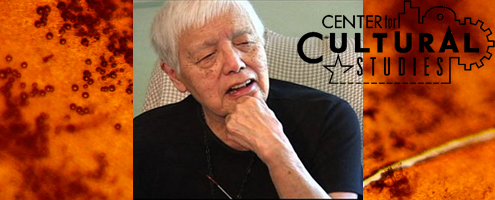* To advertise your unit or department’s event in the “Of Interest” section of this weekly bulletin, please e-mail complete event information in text format (no PDFs) to cult@ucsc.edu no later than noon on Friday of the prior week.
* Additional information and regular updates on many “Of Interest” events can be found on the IHR website.
OF-INTEREST EVENT DESCRIPTIONS:
Monday, Feb 2 / CRISIS IN THE CULTURES OF CAPITALISM / Steve Wright / “The Political: Some Experiences from the Italian Operaismo of the 1960s and 1970s” / 4:00-6:00pm / Humanities 1, Room 210
This talk will critically examine debates around ‘the political’ amongst the Italian workerists. While championing new understandings of class composition that challenged the traditional Leninist separation of economic and political struggles, the workerists of the 1960s and 1970s nonetheless struggled to formulate an agreed approach to theorizing and practicing ‘the political’. The talk will seek to explore the ways in which this tension played itself out, from early debates concerning the traditional institutions of the workers movement, to efforts to develop organizational projects outside the existing parties and unions. Along the way, attention will also be paid to the contributions of those (such as the editors of Collegamenti and Le operaie della casa) who, despite the incisiveness of many of their contributions, found themselves situated largely on the margins of the workerists’ debates as these unfolded at the time.
Steve Wright teaches in the Faculty of Information Technology, Monash University, and is the author of Storming Heaven: Class Composition and Struggle in Italian Autonomist Marxism (Pluto Press, 2002). His current research is focused on the creation and use of documents amongst the Italian workerists of the 1960s and 1970s.
(top)
Tuesday, Feb 3 / CRISIS IN THE CULTURES OF CAPITALISM / Steve Wright / Seminar: “Revolution from Above? Money and Class Composition in Italian Operaismo” / 2:00-4:00pm / Humanities 1, Room 210
Steve Wright will be leading a seminar discussion based on “Revolution from Above? Money and Class Composition in Italian Operaismo,” recently published in Marcel van der Linden and Karl Heinz Roth, Beyond Marx: Theorising the Global Labour Relations of the Twenty-First Century (Brill, 2013).
Participants are invited to read the text and join the discussion. The text can be downloaded here.
This seminar is part of the series “What Is to Be Done? Organizational Forms and Political Futures,” organized by the Crisis in the Cultures of Capitalism Research Cluster and the Institute for Humanities Research, with the co-sponsorship of the Literature, Sociology, Anthropology, and Politics Departments; Stevenson, Cowell, and Porter Colleges; and the Vice Chancellor for Research.
(top)
Wednesday, Feb 4 / FILM + DIGITAL MEDIA WEDNESDAY NIGHT CINEMA / “Still Life” / 7:00pm / Studio C (Communications 150)
STILL LIFE (1997, 56 min.)
According to Harun Farocki, today’s photographers working in advertising are, in a way, continuing the tradition of 17th century Flemish painters in that they depict objects from everyday life – the “still life”. The filmmaker illustrates this intriguing hypothesis with three documentary sequences, which show the photographers at work creating a contemporary “still life”: a cheese-board, beer glasses and an expensive watch.
(top)
Thursday, Feb 5 / LIVING WRITERS SERIES / Rigoberto Gonzalez / 6:00-7:45pm / Humanities Lecture Hall, Room 206
The Creative Writing Program presents Rigoberto Gonzalez in the Winter 2015 Living Writers Series.
Rigoberto González is the author of fifteen books of poetry and prose, and the editor of Camino del Sol: Fifteen Years of Latina and Latino Writing. He is the recipient of Guggenheim and NEA fellowships, winner of the American Book Award, The Poetry Center Book Award, The Shelley Memorial Award of The Poetry Society of America, the Lambda Literary Award, the Lenore Marshall Prize from the Academy of American Poets, and a grant from the New York Foundation for the Arts. He is contributing editor for Poets & Writers Magazine, on the executive board of directors of the National Book Critics Circle, and is professor of English at Rutgers-Newark, the State University of New Jersey.
(top)
Thursday, Feb 5 / SESNON ART GALLERY / Tom Franco / The Artist Community Collaborative Experience / 7:30-8:30pm / UCSC Music Center Recital Hall
To kick off our yearlong celebration of UC Santa Cruz’s 50th anniversary, the Sesnon Gallery is thrilled to present an innovative exhibition collaboration and performance series with UCSC alumnus Tom Franco and his Firehouse Art Collective, along with UCSC students, alumni and special guests.
This Co-Lab project is part of a Porter College course called Curatorial Practice, taught by Sesnon Gallery Director Shelby Graham with special guest Tom Franco. This course will cultivate a creative community through a collaborative exhibition format. The students will learn participatory aspects of exhibition development, performance, promotion, art handling and installation, including a chance to paint collaborative murals inside and outside of the Sesnon Gallery.
Tom Franco is an artist based in Berkeley, California, and the founder and director of the Firehouse Art Collective. Franco was an Art major at UC Santa Cruz (earning his BA in 2002), and then studied ceramics at the California College of Arts in Oakland (CCA). His work as a sculptor and painter has been the foundation for the Tom Franco Co-Lab, which is comprised of works done in tandem with one or more artists. Franco’s philosophy around art practice has always been centered on collaboration, with other influences on his work such as dance ensemble, Tai Chi and martial arts. These practices provided the backbone for his view that visual arts should be experienced in groups instead of in isolation and that performance is a central element in understanding visual representation.
Exhibition Dates: Thursday, February 5, 2015 – Friday, March 13, 2015
(top)
Friday, Feb 6 / FRIDAY FORUM FOR GRADUATE RESEARCH / Melissa Brzycki / “Inventing the Socialist Child, 1945-1976” / 12:00-1:30pm / Humanities 1, Room 202
Melissa Brzycki is a graduate student in History. Her dissertation project explores efforts to stabilize the place of children in Maoist China (1949-1976.) In 1949 the new People’s Republic of China proclaimed its success in part by moving to normalize the lives of children who had been orphaned, traumatized, and denied schooling by eight years of Japanese invasion and four years of tension and outright civil war. Melissa’s research focuses on the thinking, institution-building, and daily practices by which childhood was re-established in the context of socialist nation-building. Her research explores what the proper place for children looked like during this time of industrialization and increased agricultural production, which was accompanied by, and closely connected to, a massive mobilization of women. Her work also explores the child as a social subject and focal point of the state’s political imaginings about the ideal socialist upbringing, the relationship between state actors and families, and the shared responsibility among the various state organizations tasked with creating the socialist child.
The Friday Forum is a graduate-run colloquium dedicated to the presentation and discussion of graduate student research. The series will be held weekly from 12:00 to 1:30PM and will serve as a venue for graduate students in the Humanities, Social Sciences, and Arts divisions to share and develop their research. Light refreshments will be available.
For more info, or to inquire about joining the roster of presenters for Spring quarter contact: fridayforum.ucsc@gmail.com
(top)





